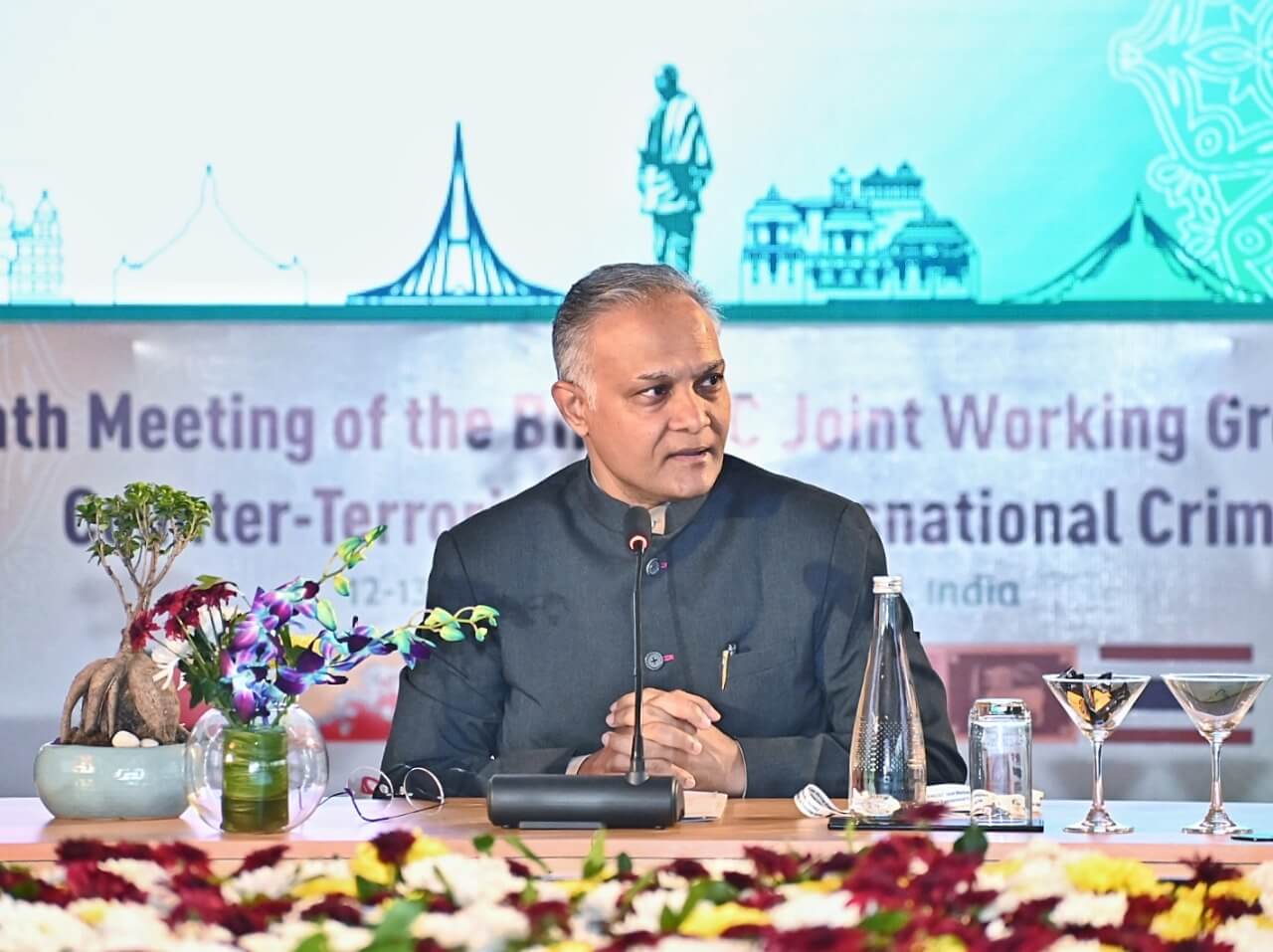The Indian Ministry of External Affairs’ (MEA) Secretary (West), Sanjay Verma, delivered the inaugural address at the 10th meeting of the Bay of Bengal Initiative for Multi-Sectoral Technical and Economic Cooperation (BIMSTEC) Joint Working Group on Counter Terrorism and Transnational Crime (JWG-CTTC) in New Delhi on Thursday.
BIMSTEC
BIMSTEC is an international organisation comprising seven South and Southeast Asian countries including Bangladesh, Bhutan, India, Myanmar, Nepal, Sri Lanka, and Thailand.
With a combined 1.68 billion people, the grouping makes up over a fifth of the world’s population and has a combined GDP of about $4 trillion.
MEETING
Members discussed “traditional and emerging non-traditional security threats” in the region and made recommendations on “wide-ranging issues to enhance cooperation and collaboration in countering terrorism and transnational crimes in the region.”
They also discussed different aspects of implementing the BIMSTEC Convention on Cooperation in Combating International Terrorism, Transnational Organized Crime and Illicit Drug Trafficking, which entered into force last year.
For its part, India emphasised “the need for collective efforts in countering the menace of terrorism and transnational crimes through enhanced cooperation in the fields of capacity building, information exchange, extradition and legal assistance.”
10th BIMSTEC JWG on Counter Terrorism and Transnational Crime meets in ND. Only collective efforts can counter traditional and emerging non-traditional threats in the region. Our common fight against Terrorism and Transnational needs to relentless.@MEAIndia @IndianDiplomacy pic.twitter.com/xCkpzTwMoU
— Sanjay Verma (@SanjayVermalFS) January 12, 2023
NOTABLE COMMENTS
Verma said that terrorism was “the worst violation of human rights and personal freedoms” and remains a huge challenge to regional peace.
“No state is immune to acts of terrorism, many of which are encouraged and sponsored beyond the borders of the affected state. Transnational crimes takes the face of trafficking in humans, arms, drugs, minerals, wildlife, counterfeit goods, or even fraud and extortion, money laundering and cybercrime,” he said.
In a veiled reference to Pakistan, Verma said that it was “worrisome” that “some countries” had “made ‘terrorism’ their state policy.”
He added that state-sponsored terror from India’s western borders routinely used Unmanned Aerial Systems, “for cross-border trafficking of drugs and arms and for carrying out terrorist attacks,” which was “a classic example of the synergy between terrorism and transnational crime.” “Our critical infrastructure is also witnessing growing and repeated cyber attacks by malicious state actors,” he stressed.
Stressing India’s policy of ‘Zero Tolerance’ against terrorism, the diplomat pledged to combat terrorism financing, “intelligence sharing and cooperating in investigative and judicial processes, capacity building, and preventing misuse of modern technologies by terrorists and transnational crime syndicates.”

